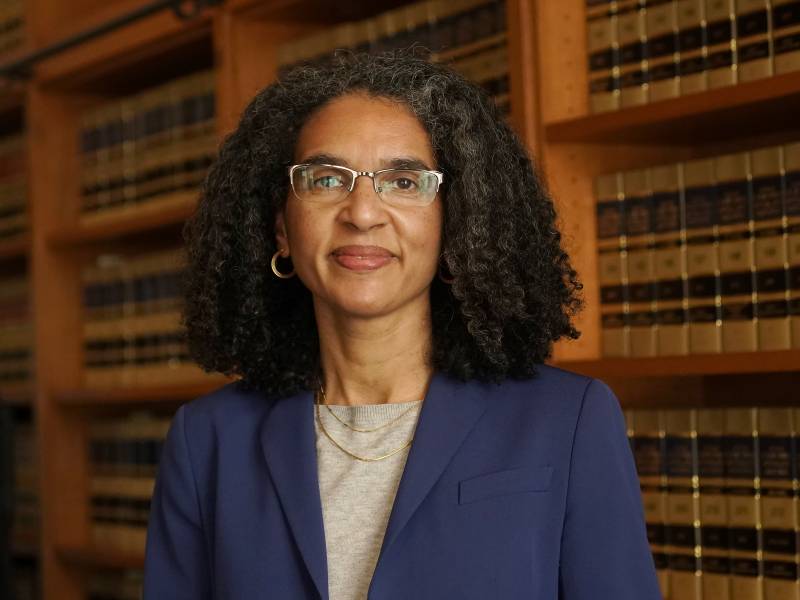After graduating from Yale, Kruger clerked for U.S. Supreme Court Justice John Paul Stevens. UC Hastings law school professor Rory Little, who worked for Stevens years earlier, said Kruger has exactly the right temperament for the bench.
“She’s kind of unflappably gracious, but also incredibly smart, just incisively smart and perceptive,” Little told KQED. “To me, she’s everything you might want in a judge.”
As a state Supreme Court Justice, Kruger has held nuanced, sometimes cautious positions. When the court has been divided, she has often joined colleagues appointed by Democratic governors, but not always. Rory Little said Kruger does not look at cases through a political lens.
“That is not who Leondra is,” Little said. “She is apolitical. I mean, I don’t think anybody can find anything in her record where she comments on things politically.”
Fatima Goss Graves, president and CEO of the National Women’s Law Center in Washington, also attended Yale with Kruger. She said having President Biden name a Black woman to the Supreme Court fills her with pride, whether it’s Kruger or someone else on the short list.
“And part of that pride comes from the fact that we have long known many people who would have been well qualified and would have made the Supreme Court better, but who were never considered,” Graves said.
There have already been misplaced criticisms from conservatives, who say that because Biden has committed to naming a Black woman that he’s somehow picking someone less qualified — a ridiculous notion given the credentials of the women he’s considering.
But Professor Little said no matter what they throw at her, Kruger will be ready.
“She’s not going to lose her cool during a Senate confirmation hearing and sort of lash out at the people on the panel. She’s not that kind of person, no matter what they say,” Little predicted.
If Biden chooses her and she is confirmed, Kruger would be the youngest justice on the court at age 45. She would also join a short list of Supreme Court justices who came from state courts — a list that includes Arizona’s Sandra Day O’Connor and David Souter of New Hampshire.

